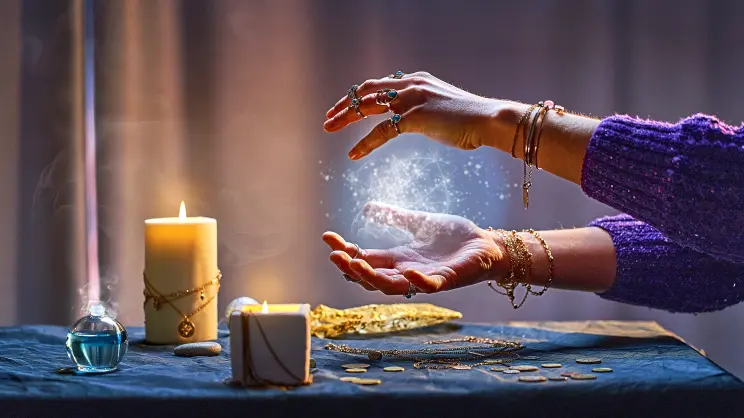Arabia, a land of ancient traditions and rich heritage, is as diverse in its aromas as it is in its landscapes. The perfumed history of this region has woven fragrances into the very fabric of its culture.
From the bustling markets to the serene oases, scents play a central role in Arabian daily life. In this olfactory exploration, we uncover the captivating world of Arabian aromas and their significance.
A Fragrant Tapestry: The Arabian Perfume Market
Arab Perfume Shops for Women
Step into an Arab perfume shop for women, and you enter a realm of sensory delight. These establishments are an integral part of Arabian culture, offering an extensive array of fragrances tailored to women’s preferences. From floral bouquets to exotic spices, each perfume tells a unique story.
Perfume Without Alcohol for Men
Arabian perfumers have mastered the art of creating alcohol-free scents for men. These fragrances cater to the discerning tastes of Arabian gentlemen, emphasizing longevity and complexity. Oud, spices, and musk are common notes in these alluring perfume without alcohol for men compositions.
Unisex Perfumes
In the world of Arabian perfumery, gender boundaries often blur. Unisex perfumes are celebrated for their versatility and broad appeal. These scents often feature notes like rose, amber, and saffron, creating a harmonious balance between floral and spicy elements.
The Perfumed Language of Hospitality
Arabian hospitality is legendary, and scents play a vital role in welcoming guests. Offering scented oils and perfumes to visitors is a gesture of warmth and respect. Guests are encouraged to apply these fragrances as a sign of appreciation for the host’s generosity.
Rituals of Purification and Spirituality
Perfume holds a sacred place in Arabian religious and spiritual practices. It’s customary for individuals to apply fragrance before religious rituals or prayers. The act of purification through scent is seen as a way to connect with the divine and create a sense of inner peace.
Oud: The Heartbeat of Arabian Fragrances
No discussion of Arabian perfumery is complete without mentioning oud. This precious resin, extracted from agarwood trees, is often referred to as “liquid gold.” Oud’s deep, woody, and slightly sweet aroma is a symbol of luxury and tradition. It’s a key ingredient in many Arabian perfumes and holds cultural significance.
Traditional Attars: Essence of Nature
Arabia’s natural landscapes inspire the creation of traditional attars, or concentrated perfumes. These attars capture the essence of regional flora and fauna. For example, the Damask rose, known for its captivating scent, is used to create exquisite rose attars.
Perfumed Celebrations
Arabian celebrations and festivals are incomplete without the presence of captivating scents. Whether it’s a wedding, a birth, or a religious holiday, perfumes are an essential part of the festivities. Guests exchange scented gifts, and the air is filled with a symphony of fragrances.
Aromatic Wardrobe: The Perfumed Clothing Tradition
In Arabian culture, it’s not just the body that is perfumed; clothing also carries fragrant stories. Fabrics are often scented with musk, ambergris, or other natural aromatics. This practice adds an extra layer of luxury and sensory pleasure to traditional attire.
Modern Arabian Perfumery
While traditional Arabian perfumery remains vibrant, modernization has brought innovations. Arabian perfumers are now exploring contemporary trends, creating unique fusions of East and West. These fragrances cater to a global audience while preserving the essence of Arabian traditions.
The Enduring Legacy
The aromas of Arabian culture are an intricate part of daily life, rituals, and celebrations. They continue to captivate and inspire, offering a glimpse into the depth and diversity of Arabian heritage. As we embrace these scents, we also embrace the history and traditions that have shaped this fragrant culture.
In the realm of Arabian aromas, the perfumed journey is both a sensory and spiritual experience. It’s a testament to the enduring power of scents to connect people, bridge generations, and celebrate the richness of life.
Crafting Scents: The Art and Science of Arabian Perfumery
Arabian perfumery is an ancient and revered art form, steeped in tradition and innovation. The creation of these captivating scents is a meticulous process that combines the mastery of traditional techniques with modern advancements. In this exploration, we delve into the art and science of Arabian perfumery.
The Perfumer’s Palette
Ingredients from Nature: Arabian perfumers have an extensive palette of natural ingredients to choose from. The region’s diverse landscapes provide a rich source of aromatic materials, including spices, resins, and rare woods. Key ingredients include oud, frankincense, myrrh, saffron, and rose.
Oud: The Precious Resin: Oud, often referred to as “liquid gold,” is the heart and soul of many Arabian fragrances. This resin is derived from the agarwood tree and is prized for its rich, woody aroma. The process of extracting oud is an art in itself, requiring skill and patience.
Distillation Techniques: Distillation is a fundamental process in Arabian perfumery. Steam distillation is commonly used to extract essential oils from plant materials like roses, lavender, and jasmine. This meticulous process ensures the preservation of the fragrance’s integrity.
The Art of Blending
Creating Harmonious Bouquets: Perfumers in Arabia are renowned for their ability to create complex and harmonious scent compositions. Blending different ingredients, each with its unique olfactory profile, requires a deep understanding of the aromatic palette.
Layering Fragrance Notes: Arabian perfumery often involves layering fragrance notes to achieve depth and complexity. Top notes provide the initial impression, followed by heart notes that create the character of the scent, and base notes that give it longevity.
The Role of Tradition
Preserving Heritage: Many Arabian perfumers take pride in preserving traditional methods passed down through generations. These methods often involve using ancient ingredients and techniques, ensuring that the heritage of Arabian perfumery lives on.
Attars: Concentrated Perfumes: Attars are highly concentrated perfumes made by distilling flowers and other aromatic materials into a base of sandalwood or other oils. These attars are often worn as pure, undiluted fragrances and are a symbol of luxury and tradition.
Innovation Meets Tradition
Modern Perfumery Labs: In recent years, Arabian perfumers have embraced modern techniques and technologies. Perfumery labs equipped with state-of-the-art equipment allow for precise formulation and quality control.
Global Appeal: Arabian perfumers have adapted their craft to cater to a global audience. This has led to the creation of fragrances that blend traditional Arabian scents with international trends, appealing to a diverse range of consumers.
Ethical and Sustainable Practices
Responsible Sourcing: Many Arabian perfumers are committed to ethical and sustainable sourcing of ingredients. This includes supporting local communities and protecting endangered species such as agarwood-bearing trees.
Eco-Friendly Initiatives: Some perfumers are exploring eco-friendly practices, including sustainable farming of aromatic plants and recycling packaging materials. These efforts align with a growing global awareness of environmental sustainability.
The Future of Arabian Perfumery
Arabian perfumery continues to evolve while staying rooted in tradition. As consumers seek authentic and unique fragrances, Arabian perfumers are well-positioned to meet these demands. With a blend of artistry, science, and commitment to heritage, the future of Arabian perfumery is bright.
In conclusion, Arabian perfumery is a testament to the enduring power of scent in culture and tradition. The perfumers of Arabia have mastered the art of crafting fragrances that captivate the senses and tell stories of their rich heritage.
As this ancient craft embraces modernization and sustainability, it remains an essential part of Arabian culture and a source of inspiration for perfumers around the world.
Author Bio:
Sayed Sayeedur Rahman is a pro digital marketer, SEO specialist, and content writer. He’s a certified professional with extensive professional experience working with USA and UK-based companies to grow their businesses. He’s the Co-Founder of TechLookBD and Digitize Online digital marketing agency.







